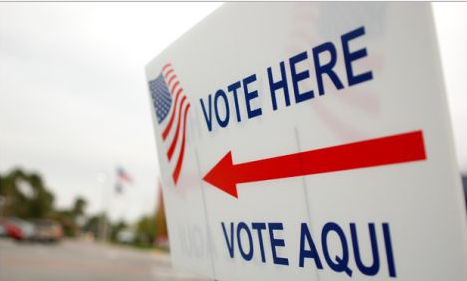 Regardless of your political affiliations, as a US citizen and eligible voter you have the right to access language services at the polling station to ensure you can make the best possible informed decision when casting your vote. Federal law requires that access to interpreters be provided either via the phone or in person at the polling station for those voters who require it.
Regardless of your political affiliations, as a US citizen and eligible voter you have the right to access language services at the polling station to ensure you can make the best possible informed decision when casting your vote. Federal law requires that access to interpreters be provided either via the phone or in person at the polling station for those voters who require it.
In the run up to an election, officials have a multitude of challenges to deal with in a timely fashion and under the federal regulations the management, scheduling and placement of interpreters is one of those challenges. While interpreters may be available remotely over the phone, frequently interpreters will be present at the polling stations where there is a large ethnic population in the area. Not having an interpreter in person can cause issues and leave some voters feeling disenfranchised. Case in point was at a Democratic caucus in February 2016 where the lack of an on-site interpreter excluded the Spanish speakers in a predominantly Spanish speaking crowd from following the proceedings, leaving them unable to contribute.
 In such cases it is critical that an appropriately qualified and experienced interpreter can be located and assigned to interpreter in these types of situations to prevent voter apathy and potential disenfranchisement. Interpreter management systems and interpreter scheduling systems can be used to efficiently identify the most suitably qualified interpreters, in close proximity to the polling stations while streamlining the collection of hours completed by the interpreters and in turn the generation of the interpreter payments.
In such cases it is critical that an appropriately qualified and experienced interpreter can be located and assigned to interpreter in these types of situations to prevent voter apathy and potential disenfranchisement. Interpreter management systems and interpreter scheduling systems can be used to efficiently identify the most suitably qualified interpreters, in close proximity to the polling stations while streamlining the collection of hours completed by the interpreters and in turn the generation of the interpreter payments.
Interpreter Intelligence can be used in these situations to manage interpreter profiles, their qualifications, experience and ratings and be used to efficiently schedule the most appropriate interpreters across a large number of polling stations. Leveraging the automated scheduling allows the on-site language positions to be posted well in advance and appropriate interpreters to be invited to fill these positions. The real time reporting allows administrators and schedulers to see at a glance any unfilled appointments and proactively fill these in advance of election day.
Election officials can use interpreter management systems to address the language access challenges required as election day approaches.

Reading your article helped me a lot and I agree with you. But I still have some doubts, can you clarify for me? I’ll keep an eye out for your answers.
I have read your article carefully and I agree with you very much. So, do you allow me to do this? I want to share your article link to my website: Cryptocurrency Prices
how to get atenolol
buy citalopram citalopram 30 mg celexa 15mg
generic atarax 25mg
how to order clomid
celebrex 200 mg canada
average cost of synthroid
amoxicillin 50 mg tablets
buy generic propecia uk